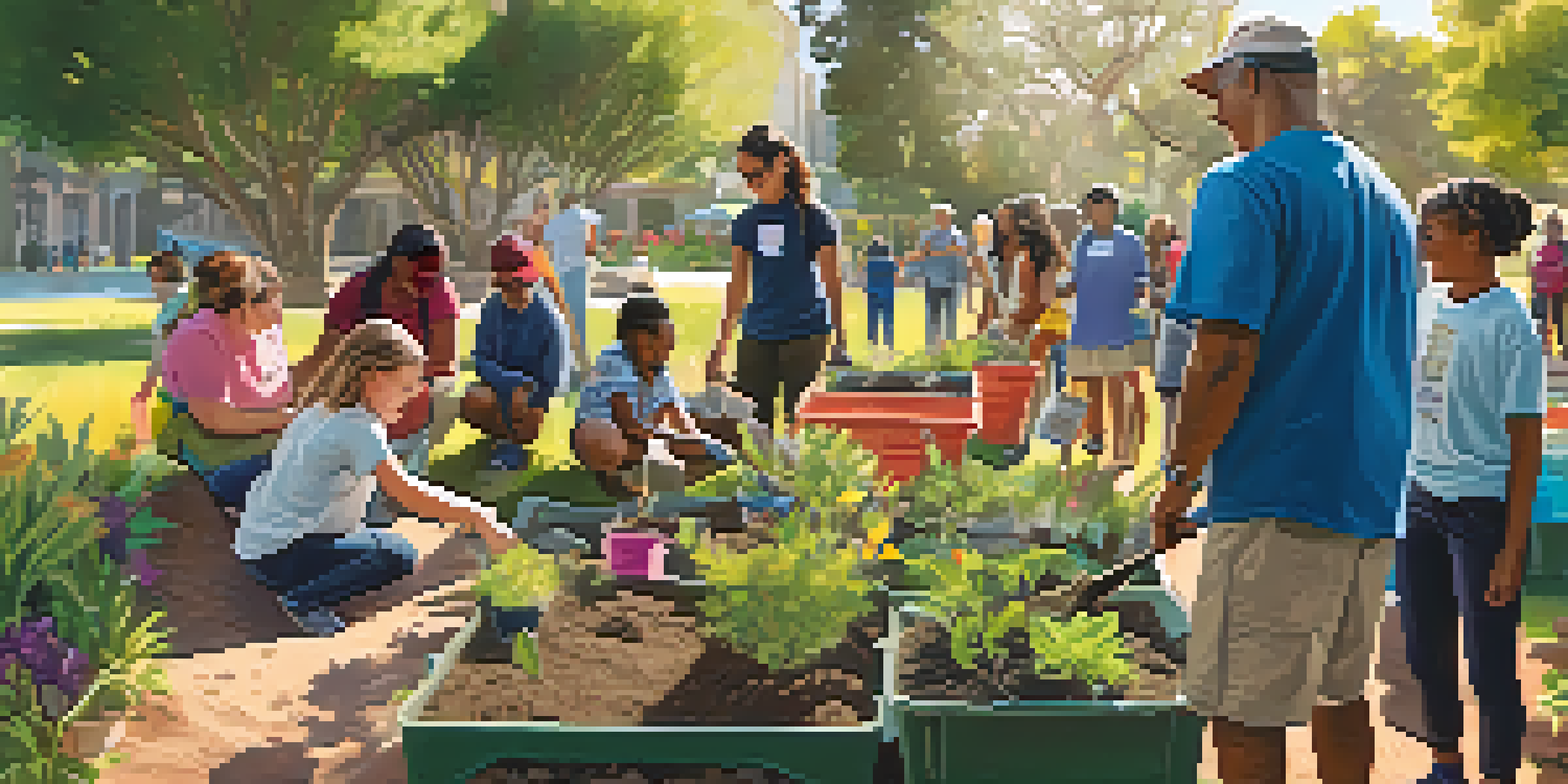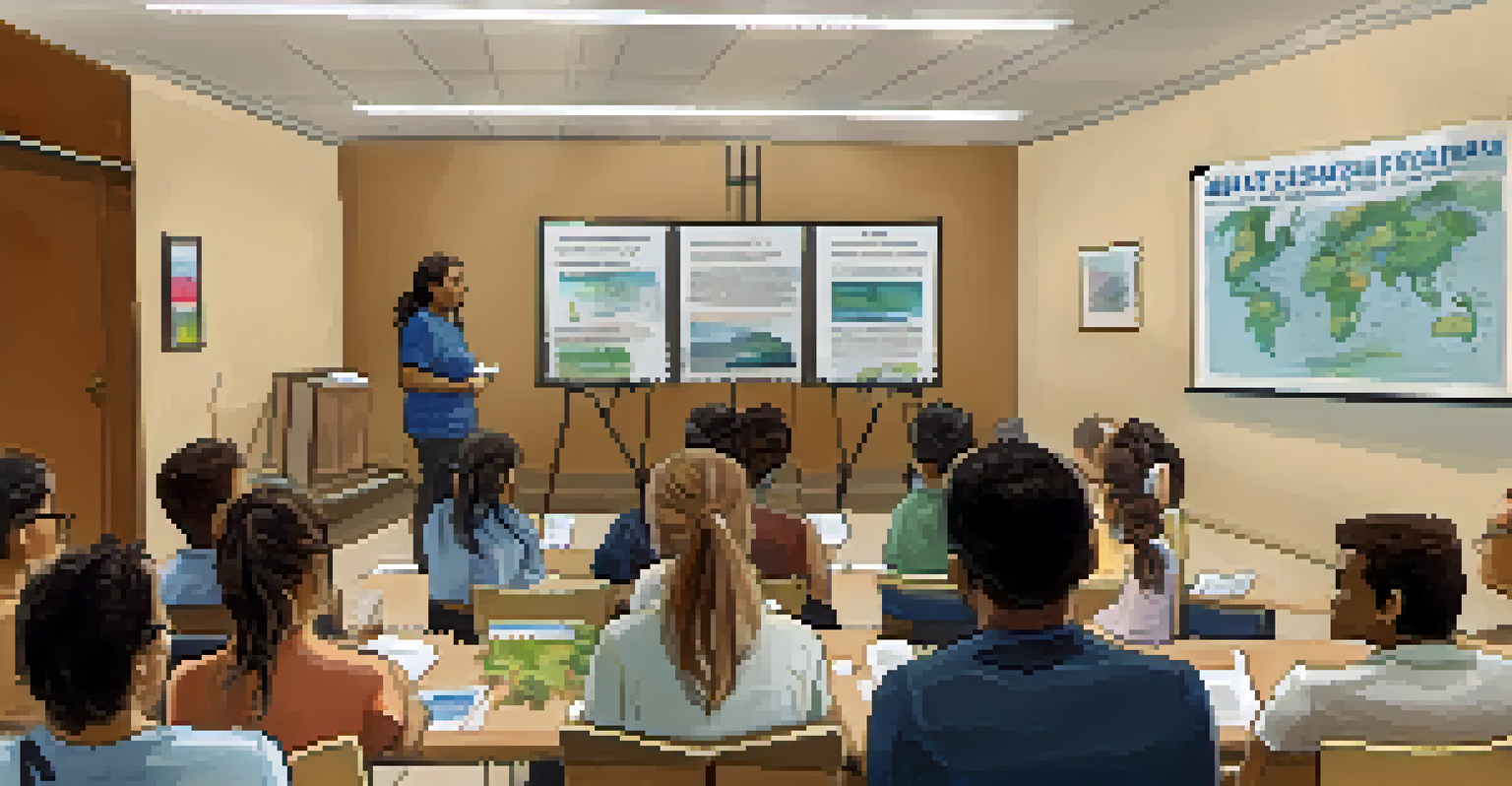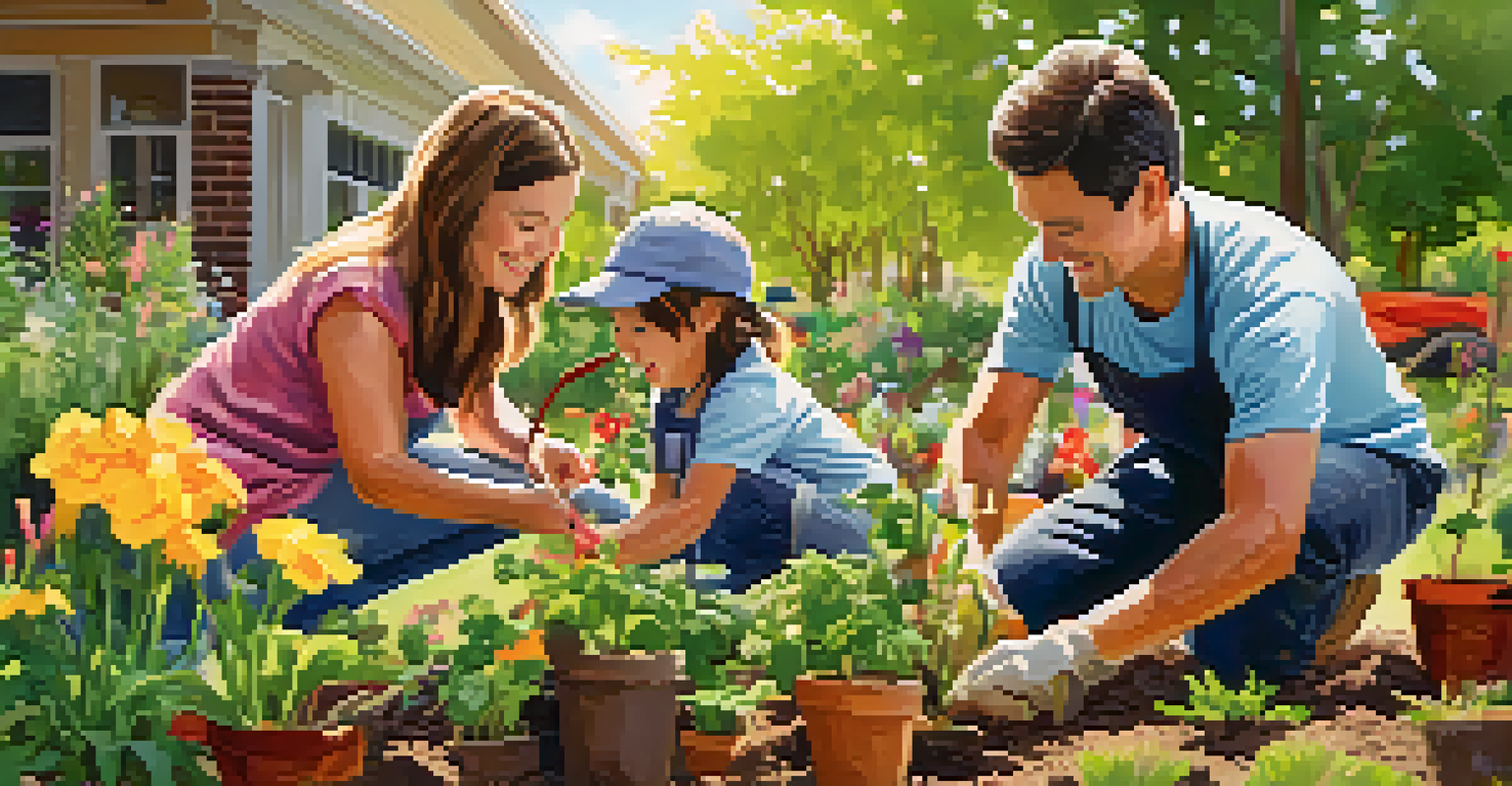Community Workshops on Environmental Education in San Diego

Introduction to Community Workshops in San Diego
San Diego is known for its beautiful beaches and vibrant culture, but it’s also home to an array of community workshops focused on environmental education. These workshops aim to empower residents with knowledge about sustainability and conservation. By engaging locals, the city promotes an environmentally conscious mindset that can lead to impactful changes.
The best way to predict the future is to create it.
From hands-on activities to informative lectures, these workshops cater to all ages and backgrounds. They provide an interactive platform where community members can learn about pressing environmental issues, such as climate change and pollution. This collective learning experience fosters a sense of responsibility and shared purpose among participants.
As residents become more informed, they’re better equipped to make sustainable choices in their daily lives. The workshops serve as a catalyst for community involvement, encouraging participants to take action beyond the classroom. This ripple effect can lead to lasting positive changes in the San Diego area.
Diverse Topics Covered in Workshops
The workshops in San Diego cover a wide range of topics, ensuring that there’s something for everyone. Popular subjects include waste reduction, native plant gardening, and water conservation. By addressing these diverse areas, the workshops help attendees understand the interconnectedness of environmental issues.

For instance, a session on composting not only teaches participants how to reduce food waste but also highlights the benefits for soil health and biodiversity. Similarly, workshops on water conservation demonstrate simple practices that can significantly lower water usage in homes and gardens. This holistic approach encourages participants to think critically about their daily habits.
Workshops Foster Environmental Awareness
Community workshops in San Diego empower residents with knowledge about sustainability and conservation, promoting an environmentally conscious mindset.
By exploring various themes, the workshops empower attendees to adopt sustainable practices tailored to their lifestyles. The goal is to inspire individuals to become advocates for the environment in their own communities. This grassroots approach amplifies the impact of environmental education.
Hands-On Learning and Community Engagement
One of the standout features of these workshops is the emphasis on hands-on learning. Participants often engage in activities like planting trees, creating rain gardens, or building compost bins. These practical experiences not only impart valuable skills but also foster a deeper connection to nature.
We do not inherit the earth from our ancestors, we borrow it from our children.
This experiential learning is crucial, as it allows attendees to see the immediate impact of their actions. For example, planting a tree can instill a sense of pride and responsibility, encouraging individuals to care for their environment. Such direct involvement cultivates a proactive attitude towards sustainability.
Moreover, these hands-on activities create opportunities for community bonding. Participants often share stories, tips, and experiences, building relationships that extend beyond the workshops. This camaraderie can lead to collaborative efforts in local environmental initiatives, further strengthening the community.
Target Audience: Who Can Attend?
Community workshops on environmental education in San Diego welcome everyone, from families to individuals of all ages. The inclusive nature of these events ensures that anyone interested in learning about sustainability can participate. This accessibility is key to fostering a diverse community of environmentally conscious citizens.
Many workshops are designed specifically for children, incorporating fun and interactive elements to engage young minds. By educating the next generation about environmental stewardship, these sessions help instill lifelong values. Parents often attend alongside their kids, making it a family affair that promotes shared learning.
Hands-On Learning Engages Participants
The workshops emphasize hands-on activities, allowing participants to gain practical skills while deepening their connection to nature.
Additionally, workshops are tailored to various expertise levels, from beginners to seasoned green advocates. This ensures that all participants can benefit, regardless of their prior knowledge. The diverse audience enriches discussions, allowing for a wide range of perspectives on environmental issues.
Partnerships with Local Organizations
The success of these workshops is largely due to collaborations with local organizations, nonprofits, and educational institutions. These partnerships enhance the quality and reach of the programs offered. By pooling resources and expertise, they create a robust network dedicated to environmental education.
For example, local gardens and parks often host workshops, providing a beautiful backdrop for learning. Organizations may also bring in experts to lead sessions, ensuring that participants receive high-quality information. This collaboration enriches the learning experience and fosters community connections.
Furthermore, partnerships can lead to additional resources, such as grants or materials for workshops. This financial support allows for more comprehensive programming, ensuring that workshops remain free or low-cost for participants. Ultimately, these collaborations help build a more sustainable community in San Diego.
Measuring Impact and Success
To understand the effectiveness of these workshops, organizers often collect feedback from participants. Surveys and discussions help gauge what attendees learned and how they plan to implement changes in their lives. This feedback is invaluable for refining future workshops and ensuring they meet community needs.
Moreover, the long-term impact is assessed through community engagement and environmental improvements. For instance, local tree-planting initiatives may result in increased green spaces, while waste reduction efforts can lead to cleaner neighborhoods. These tangible results demonstrate the workshops' success in fostering environmental awareness.
Inclusive Programs for All Ages
These workshops are designed for everyone, from children to seasoned advocates, ensuring a diverse community engaged in environmental stewardship.
By tracking participation and outcomes, organizers can report on the growth of environmental stewardship within the community. This data not only highlights the importance of continued education but also encourages more residents to join in. Seeing the positive effects can inspire others to take part in future workshops.
How to Get Involved and Participate
Getting involved in San Diego's community workshops is easy and rewarding. Interested individuals can visit local environmental organizations' websites or social media pages for upcoming events. Many of these platforms provide a calendar of workshops, making it simple to find a session that piques your interest.
In addition to attending, there are opportunities to volunteer or even lead a workshop. Those with expertise in specific areas can share their knowledge, contributing to the community's learning experience. Volunteering not only allows individuals to give back but also helps build connections with like-minded residents.

Lastly, spreading the word about these workshops can amplify their impact. By sharing information with friends, family, and neighbors, participants can encourage others to join the movement towards sustainability. Together, small actions can lead to significant change in the community.